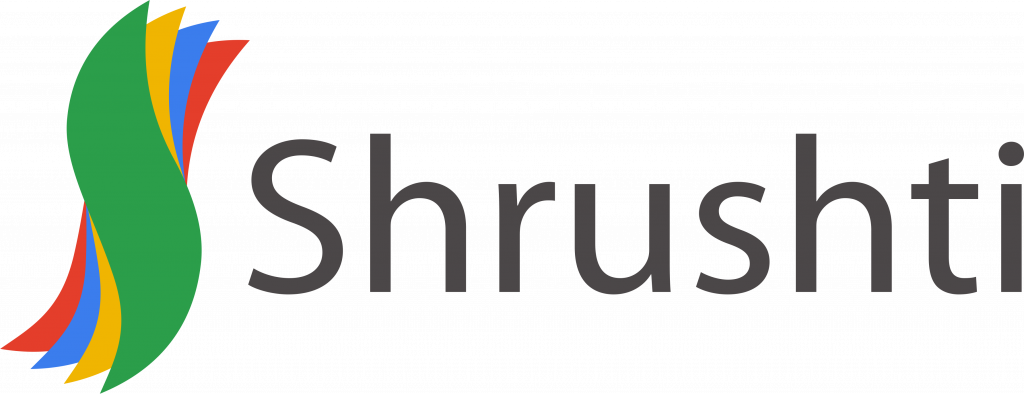
The significance of search engine optimization (SEO) is on the rise, with numerous new trends and planned changes slated for 2023. Therefore, it is crucial to develop a well-crafted strategy to stay ahead. Nonetheless, are there SEO techniques that can be deemed unfavorable?
Numerous questionable SEO techniques, often called “Black Hat SEO,” continue to be employed. Employing such practices can lead to punitive actions by Google, resulting in a decline in your SERP ranking rather than an improvement. It is advisable to steer clear of these detrimental methods and redirect your investments in time, effort, and finances towards a more optimal SEO strategy.
If your website receives a negative response from Google, it is crucial to identify the primary factors contributing to this perception. To overcome these challenges, adopting strategic approaches can be highly effective in resolving the issues and improving your website’s relationship with Google.
Common reasons why Google hates your website
1. Toxic and paid backlinks
One of the critical techniques used in Black Hat SEO involves the manipulation of backlinks. This includes the practice of buying backlinks, as well as employing toxic backlinks. While these two methods can be related, it’s essential to recognize that they can be distinct tactics with unique implications. Below, we delve into a comprehensive explanation of both practices.
Beneficial vs. Harmful Backlinks
Backlinks stand tall in search engine optimization, securing a spot among Google’s top-ranking factors. Each backlink serves as a vote of confidence from other websites, elevating your site’s popularity and merit in the eyes of search engines. However, it is crucial to understand that not all backlinks hold equal value; their impact depends on the relevance and credibility of their sources.
Toxic backlinks, in stark contrast, emerge as the adversaries of SEO. Search engines like Google label These links unnatural and dubious, stemming from manipulative tactics like Black Hat SEO. Moreover, these backlinks often originate from low-quality websites, making them even more detrimental. Falling victim to toxic backlinks can lead to penalties and a decline in your website’s search rankings.
Google identifies unnatural and poor-quality links, such as those from low-domain authority websites, which devalues the backlinks.
- Backlinks from sites created solely for getting backlinks are considered manipulative and can harm search rankings.
- Links from irrelevant sources unrelated to your niche or sector receive a lower quality assessment.
- Private blog networks (PBNs) are discouraged as they manipulate authority flow for link building.
- Mirror pages, where multiple websites link to your site using the exact anchor text, are a red flag for Google.
- Engaging in paid backlinks can result in penalties and should be avoided.
Various tools are available to check the toxicity of external links.
Is Buying Backlinks a Wise SEO Strategy or a Risky Move?
Paying for backlinks is a big no-no for your website’s SEO. Google doesn’t like it, and your website can get in trouble if they catch you doing it. Even if you try to be sneaky about it by getting sponsored guest posts or exchanging products for backlinks, it’s still against the rules. So, it’s better to avoid buying links and focus on doing SEO correctly.
2. Keyword stuffing
Keyword stuffing is a technique used in Black Hat SEO that involves cramming a website’s content and meta elements with too many keywords. The goal is to trick search engines into ranking the site higher. However, avoiding this method is crucial because it goes against search engine rules. If caught, your website may suffer penalties, like a drop in rankings or removal from search engine results. So, it’s best to avoid keyword stuffing and focus on providing valuable and relevant content instead.
Now Let’s us understand keyword stuffing:
Keyword stuffing is when website creators stuff their pages with too many keywords to manipulate search engine rankings. They repeat the exact keywords in page parts like meta descriptions, URLs, title tags, headings, and paragraphs. However, you must correct this method because search engines like Google have become more competent and can now detect it. Instead, they value good content and a positive user experience, so focusing on that is better than trying to stuff keywords everywhere.
Keyword stuffing used to work well in the early days of SEO, but not anymore. Google’s algorithms, like “PANDA” and later updates, have become more intelligent. They can see through tricks like keyword stuffing and now prioritize genuine and valuable content that offers a good user experience. So, trying to outsmart Google with such tactics is a bad idea. It’s better to focus on creating helpful, high-quality content for your audience.
White Hat SEO is the solution
When optimizing web pages, choose the keywords your audience cares about. Use these keywords smartly in essential parts of the page, like the URL, title, and content. You can add synonyms and related words to help Google understand your page better. But remember, the most important thing is to focus on your audience’s wants and needs. Your content should be engaging and helpful to them.
3. Your Content Offers Little Value
Previously, just writing content to rank higher in search results worked. But now, Google cares more about giving users the best experience. You must provide real value to your readers to succeed in search rankings. Create engaging and high-quality content that keeps them coming back for more. This shows Google that your site is worth recommending. So, focus on giving your audience what they want and make them happy!
How well your website ranks in search depends on how much time visitors spend on it and how they interact with your content. Google pays close attention to these factors. To improve your website’s ranking, try to make visitors stay longer and engage with your content, like sharing it on social media. This will help your site do better in search results.
Having great content with helpful advice keeps readers interested, and they read the whole thing. Google considers how long users stay on your site to judge if your content is relevant. If people spend more time on your page, it shows your content is valuable and engaging. But if they leave quickly, it might mean your content needs improvement. So, aim to create captivating content that makes readers stick around!
Create valuable content that gives helpful answers and practical advice. Don’t just add words to fill the space. Make it clear, precise, and engaging to be easy to read and sound great. Please keep the original meaning while making it more eloquent.
Engaging with your audience is crucial. When your content is valuable and shareable, it gains recognition from Google. Having a single article that is highly shareable carries more significance with Google than producing 100 articles with low shareability. Interaction is vital in establishing credibility with Google and boosting your online presence. Remember, quality over quantity matters, and fostering meaningful engagement will yield better results regarding search engine visibility.
4. Over-optimization of Google My Business (GMB)
Optimizing your Google My Business listings with essential details like business hours is crucial for Local SEO. When your website is well-optimized, it helps your listings connect better with Google. But remember, while adding valuable information is essential, do the optimization sparingly, as it’s important to keep your listings authentic and credible.
Over-optimizing Google My Business listings is frowned upon by Google, as they categorize it as Black Hat SEO. One key aspect they focus on is the name of the shop. It may be deemed over-optimizing if you excessively insert significant keywords or the shop’s specific location (town or village) in its name. However, Google appears to show some leniency regarding businesses with multiple shop locations in different cities, allowing them to include the location in the title, albeit with a word of caution.
Remember, optimizing your company description and responses to FAQs and reviews requires a careful approach. Google quickly identifies attempts to manipulate search rankings through repetitive use of keywords, links, phone numbers, and email addresses. In the event of such detection, Google will take action by rejecting your listing and excluding it from the map pack to maintain the integrity and relevance of search results.
What are the recommended methods for optimizing it?
If you want to optimize your Google My Business listings while steering clear of Black Hat SEO tactics, follow these guidelines:
- Opt for a succinct and descriptive shop name that accurately represents your business.
- Use relevant keywords in your responses to FAQs and reviews, ensuring they sound organic and genuine.
- Keep the business description honest and within 750 characters, incorporating generic keywords sensibly and avoiding excessive repetition.
- Take advantage of the available fields to include essential details such as address, phone number, operating hours, website link, high-quality images, and specific services/equipment offered.
5. Your Website Design Is Out Of Date
Your website’s rank is influenced by several factors integrated into its design. Hence, even before initiating any SEO activities, the design is a critical aspect that impacts its potential position in search engine results.
Avoiding an outdated website design is crucial to prevent Google’s penalization, particularly for the lack of mobile-friendly features, which can significantly hamper your search engine rankings, leading to a decline of potential leads by up to 30%. Furthermore, ensuring your website design incorporates proper title tags and metadata is essential, as these elements enable Google to understand your content, thus improving your chances of being ranked favorably.
6. Not monitoring your SEO-evolution
Steering clear of Black Hat SEO practices is vital for maintaining a healthy website, but neglecting to monitor your site’s performance can still lead to unfavorable outcomes. Google’s dynamic ranking system necessitates ongoing vigilance and optimization to secure top positions in search results. Leveraging tools like Google Search Console allows you to access valuable data on SEO performance, page indexing status, and website health. Detecting any decline in keyword positions or clicks can be a timely warning to take corrective actions and effectively adapt to Google’s algorithm updates.
7. Cloaking
The deceptive tactic known as Black Hat SEO encompasses presenting diverse content to search engine crawlers, contrasting with the content visible to regular users like us. The ultimate objective is to achieve higher rankings for targeted keywords. This involves inserting concealed content that remains unnoticed by human eyes but gets detected by search engine bots.
Which are the types of Cloaking?
- Using text in the same color as the page background.
- Hiding text behind images.
- Presenting different content to search engine bots compared to regular visitors.
- Manipulating JavaScript and CSS to make text appear outside the visible screen area.
The final method in the list, which is more challenging for Google to identify as cloaking, also presents difficulties in penalizing. However, Google’s algorithms are continuously improving, making it increasingly more accessible for the search engine to detect this Black Hat SEO technique.
Google advises that all page content be visible, though certain situations might require exceptions for enhanced user experience (UX). For instance, dynamic websites may need to conceal certain content to maintain attractiveness and user-friendliness. Therefore, some flexibility exists regarding hiding content in such cases.
Go for White Hat SEO with Shrushti Digital
Now that you know the severe consequences of Black Hat SEO practices and understand our preferred White Hat techniques, are you eager to kickstart search engine optimization for your business? Don’t hesitate to contact us, and we’ll be more than happy to lend a hand!
About the Author
My name’s Semil Shah, and I pride myself on being the last digital marketer that you’ll ever need. Having worked internationally across agile and disruptive teams from San Fransico to London, I can help you take what you are doing in digital to a whole next level.



